18 Sep2017
By JTE Insider

Have you seen the JTE Insider blog managed by the Journal of Teacher Education (JTE) editorial team? Check out the following interview with the authors of a recent article. This blog is available to the public, and AACTE members have free access to the articles themselves in the full JTE archives online – just log in with your AACTE profile here.
This interview features insights from the article “New Standards Require Teaching More Statistics: Are Preservice Secondary Mathematics Teachers Ready?” written by Jennifer N. Lovett of Middle Tennessee State University and Hollylynne S. Lee of North Carolina State University. The article, which appears in the May/June issue of JTE, is summarized in the following abstract:
15 Sep2017
By Zachary VanHouten
By October 2, the Institute for Education Sciences (IES) is seeking input from the field on its requirements related to efficacy, replication, and effectiveness studies.
The impetus of the feedback request follows recommendations provided from a technical working group that was assembled in October 2016. IES seeks to understand whether the current Goals 3 and 4 (out of its full list of five) are meeting the needs of the field or whether modifications would be beneficial to replication and effectiveness studies. Goal 3 addresses efficacy and replication studies, and Goal 4 supports independent evaluation of prior efficacy studies.
29 Aug2017
By Erisel Cruz
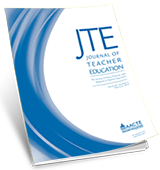
Have you read the September/October 2017 issue of the Journal of Teacher Education (JTE) yet? It is now available online and hitting desks around the country. See what Volume 68 Number 4 has to offer!
- In this month’s editorial, “How Teacher Education Can Elevate Teacher Quality: Evidence From Research,” members of the JTE editorial team at Michigan State University highlight the issue’s four articles. Robert E. Floden, Gail Richmond, Corey Drake, and Emery Petchauer note the papers’ findings and the significance of their topics to various stakeholders in teacher preparation.
29 Aug2017
By Rodrick Lucero
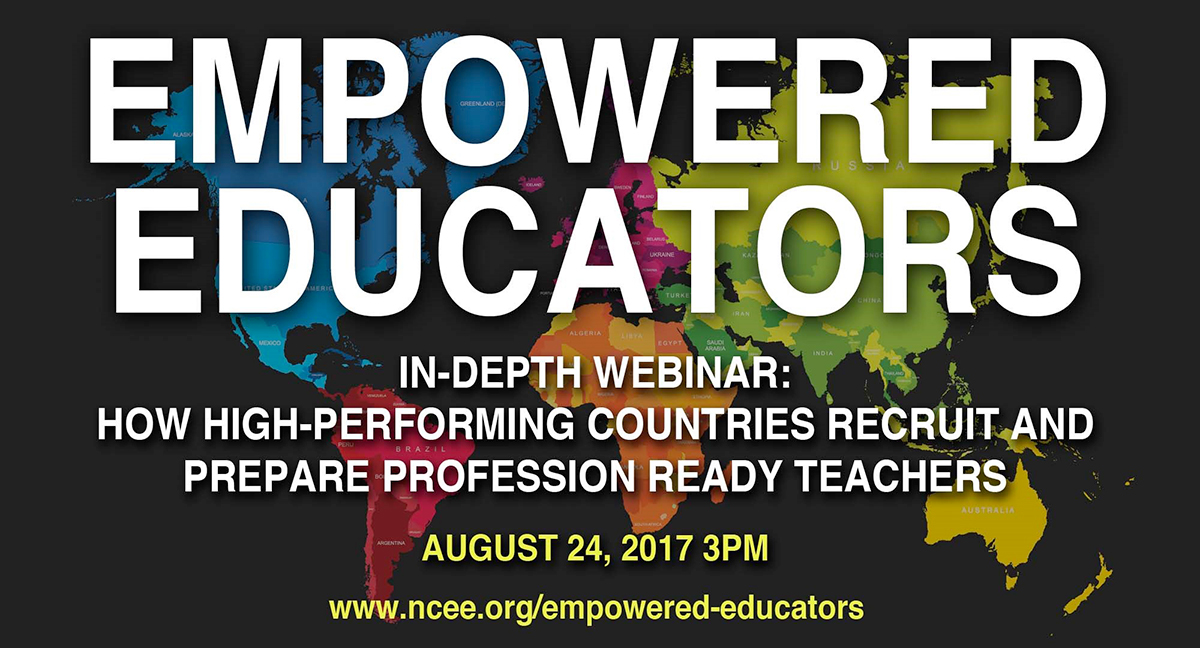
Last week, I was honored to participate in a webinar discussing Empowered Educators, an international comparative study of teacher and teaching quality in the world’s top-performing education systems. Hosted by the National Center on Education and the Economy (NCEE), whose Center on International Education Benchmarking sponsored the study, this event featured members of the research team discussing specific lessons for the recruitment and preparation of profession-ready teachers.
Lead researcher Linda Darling-Hammond (of the Learning Policy Institute and Stanford University) was joined by NCEE President and CEO Marc Tucker for an introduction of the study. Other researchers on this webinar were Finnish researcher Pasi Sahlberg, who helped lead the Empowered Educators case study on Finland, and A. Lin Goodwin of Teachers College, Columbia University (NY), who worked on the Singapore branch of the study. I served as a discussant, as did Mary Sandy, executive director of the California Commission on Teacher Credentialing.
29 Aug2017
By Kristin McCabe
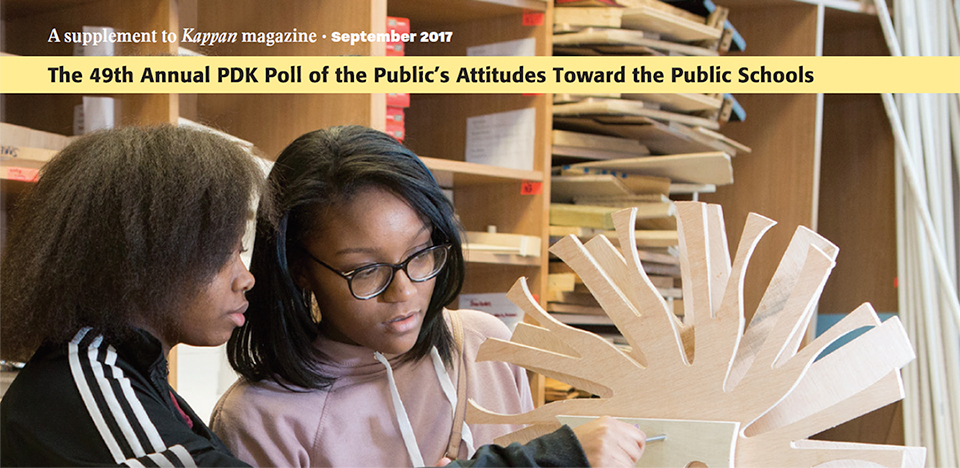
“The three R’s alone don’t cut it anymore,” announces a report released August 28 on the 49th annual PDK Poll of the Public’s Attitudes Toward the Public Schools. In addition to solid academics, Americans want their schools to provide job training, more explicit focus on social-emotional skills, and “wraparound” services like health centers and afterschool programs. Respondents also want students to learn in diverse classrooms and are skeptical about vouchers and the value of standardized tests.
This year’s survey sought to learn more about last year’s discovery of a desire among the American public for schools to focus less on honors classes and more on career and technical education. The new data suggest that the public really wants both strong academics and job preparation, including classes focused on career skills, technology and engineering, and programs leading to a professional certificate or license. The less satisfied respondents are with their local schools, the more likely they are to say schools should offer more job/career skills classes.
22 Aug2017
By Rodrick Lucero
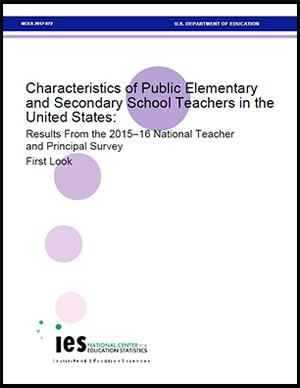
Last week, the National Center for Education Statistics (NCES) released initial data from the 2015-2016 National Teacher and Principal Survey, providing the latest nationwide snapshot of the characteristics of public school teachers. (Results of the school-level survey are being released today, and principal-level data are available here.) The “First Look” report on the teacher survey (download PDF here) shows the education workforce has grown slightly more female (77% compared to 76%) and slightly less White (80% compared to 82%) than it was 4 years ago – although NCES cautions that comparisons are somewhat imprecise because some of the questions were worded differently or drew on different sources than in the former Schools and Staffing Survey, on which the new survey is based.
A recent article in Education Week highlights key data and comparisons between this survey and the last, noting that the education profession has made some advancements in diversifying the teaching workforce. However, these modest gains may be more conditional than intentional, and the survey spotlights continued trouble spots such as low pay and uneven assignment of teacher expertise. What this article says to me is that we must continue to work every day to make teaching a worthy career option, valued for its contributions to the democratic fabric of our society – especially among the most underrepresented demographics. As a profession, we have an ongoing imperative to attract highly motivated, diverse, innovative, smart educators into the profession and support them with programs rich in the pedagogy and content that will serve the nation’s young people well into the future.
22 Aug2017
By JTE Insider

Have you seen the JTE Insider blog managed by the Journal of Teacher Education (JTE) editorial team? Check out the following interview with the authors of a recent article. This blog is available to the public, and AACTE members have free access to the articles themselves in the full JTE archives online – just log in with your AACTE profile here.
This interview features insights from the article “Seeing Is Believing: Promoting Visual Literacy in Elementary Social Studies,” by Kristy A. Brugar of the University of Oklahoma and Kathryn L. Roberts of Wayne State University (MI). The article, which appears in the May/June issue of JTE, is summarized in the following abstract:
14 Aug2017
By Rodrick Lucero
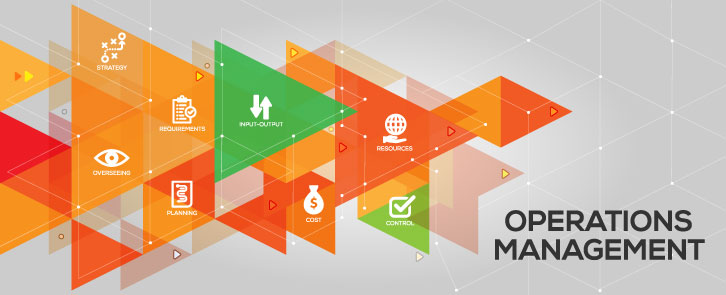
The AACTE team has embarked on a new adventure and we can’t wait to share it with you!
This undertaking is engaging all of us in a significant self-study – not unlike what you do on your campuses for quality assurance and continuous improvement – using an improvement science model. Over the next few months, the team will conduct a deep audit of our operations, looking at internal protocols and processes along with membership structures, programs and services, and resources. AACTE is working with the rpk GROUP consulting firm to assist us with this project. This internal work is simultaneous with a comprehensive member survey that is being released next month. These concurrent efforts will empower AACTE as it anticipates its 70th anniversary in 2018.
14 Aug2017
By JTE Insider

Have you seen the JTE Insider blog managed by the Journal of Teacher Education (JTE) editorial team? Check out the following interview with the author of a recent article. This blog is available to the public, and AACTE members have free access to the articles themselves in the full JTE archives online – just log in with your AACTE profile here.
This interview features insights from the article “Collaborating to Address the Challenge of Academic Language,” by Trace Lahey of York College, City University of New York. The article, which appears in the May/June issue of JTE, is summarized in the following abstract:
Teacher candidates rely on mentors working in their college-based teacher education programs and mentors working in the college’s partner schools to support their development as future teachers as well as their Teacher Performance Assessment (edTPA) preparations.
08 Aug2017
By JTE Insider

Have you seen the JTE Insider blog managed by the Journal of Teacher Education (JTE) editorial team? Check out the following interview with one author of a recent article. This blog is available to the public, and AACTE members have free access to the articles themselves in the full JTE archives online – just log in with your AACTE profile here.
This interview features insights from the article “Effects of a Multimedia Professional Development Package on Inclusive Science Teachers’ Vocabulary Instruction,” by Michael J. Kennedy, Wendy J. Rodgers, John Elwood Romig, John Wills Lloyd, and Mary T. Brownell. The article, which appears in the March/April issue of JTE, is summarized in the following abstract:
Vocabulary knowledge is vital for students’ success in school and beyond. However, students with disabilities and others who consistently score below their peers on various measures of vocabulary knowledge have difficulties in secondary-level content area courses. Because many students with disabilities are now educated primarily in general education classrooms, their teachers report needing more professional development on instructional strategies to support this population. Using a multiple-baseline design, we tested the efficacy of a multimedia, multicomponent professional development package in which middle school science teachers in inclusive classrooms promoted science vocabulary knowledge. The professional development package improved the quality of the teachers’ use of evidence-based vocabulary practices and increased the amount of time they spent explicitly teaching vocabulary in their classes.
28 Jul2017
By Kristin McCabe

Time is running out to apply for the 2018 AACTE Outstanding Dissertation Award! Entries must be made online by Friday, August 18. Help AACTE recognize outstanding doctoral research in educator preparation by encouraging your top recent graduates (or recent hires) to apply for this prestigious award, which includes a $1,000 cash prize.
The Committee on Research and Dissemination will review submissions this fall, and applicants will learn of their status in November (although the announcement of the winner is embargoed until February). The winner will be recognized during AACTE’s 70th Annual Meeting in Baltimore, Maryland, March 1-3, 2018.
28 Jul2017
By Kristin McCabe

Next month, AACTE’s Quality Support Workshop in Minneapolis will help participants take their programs and practices to the next level with 2 days of hands-on, expert-facilitated sessions. Attendees will interact with leaders from educator preparation programs (EPPs) as well as with researchers, program administrators, and other professionals who will be on hand to guide their progress at the Hyatt Regency Minneapolis, August 10-12.
Participants can work on assessment data, quality assurance plans, standards and evidence for accreditation, and much more in their choice of over two dozen sessions led by these facilitators:
28 Jul2017
By JTE Insider

Have you seen the JTE Insider blog managed by the Journal of Teacher Education (JTE) editorial team? Check out the following interview with authors of a recent article. This blog is available to the public, and AACTE members have free access to the articles themselves in the full JTE archives online – just log in with your AACTE profile here.
This interview features insights from the article “Preparing Bilingual Teachers: Mediating Belonging With Multimodal Explorations in Language, Identity, and Culture” written by Patricia Martinez-Álvarez, Isabel Cuevas, and María Torres-Guzmán. The article, which appears in the March/April issue of JTE, is summarized in the following abstract:
25 Jul2017
By Carolyn Hopp
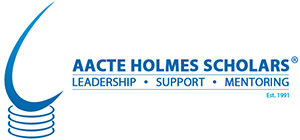
The 4th annual University of Central Florida (UCF) and Florida A&M University (FAMU) Holmes Dissertation Symposium and Retreat will take place October 27-28 on the UCF campus. AACTE Holmes Program participants, members of the National Association of Holmes Scholars Alumni (NAHSA), faculty mentors, and university officials will gather to engage in scholarly conversations about the dissertation process as well as other timely topics such as grant writing, faculty mentoring of diverse students, postdoctoral career choices, the tenure and promotion process, and self-advocacy.
Since its inception in 2014, the UCF-FAMU Dissertation Retreat has become a mainstay in supporting Holmes Scholars’ journey to the doctorate. Sheila Moore (FAMU) and I serve as co-coordinators of the retreat. We had a vision to bring together Holmes Scholars from all over the country to engage in scholarship and collegiality, and that vision became a reality when the first Dissertation Retreat and Research Symposium was held on the campus of FAMU in 2014.
18 Jul2017
By JTE Insider

Have you seen the JTE Insider blog managed by the Journal of Teacher Education (JTE) editorial team? Check out the following interview with authors of a recent article. This blog is available to the public, and AACTE members have free access to the articles themselves in the full JTE archives online – just log in with your AACTE profile here.
This interview features insights from the article “Capturing the Complex, Situated, and Active Nature of Teaching Through Inquiry-Oriented Standards for Teaching” by Claire Sinnema, Frauke Meyer, and Graeme Aitken of the University of Auckland, New Zealand. The article, which appears in the January/February 2017 issue of JTE, is summarized in the following abstract:















